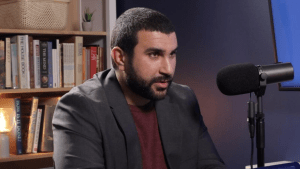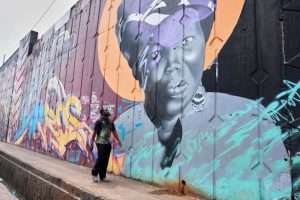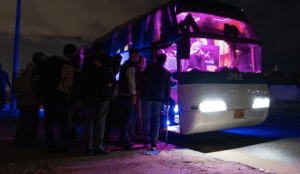Afghan Women’s Freedom and Salon Closures

In yet another blow to women’s rights in Afghanistan, the Taliban has issued orders to shut down all hair and beauty salons across the country, a decision which comes as a grim reminder of the increasing restrictions faced by Afghan women under the group’s rule, pushing them further into the shadows of society.
The closure of these salons, announced earlier in July, is expected to result in the loss of an estimated 60,000 jobs, exacerbating an already dire economic situation in the country.
Until recently, hair and beauty salons were permitted to operate since the Taliban regained control of Afghanistan two years ago. However, in a disturbing turn of events last month, the group reversed its stance, leaving many women devastated and facing yet another setback in their quest for basic freedoms. With the closure of these establishments, Afghan women are now facing even more limited spaces to gather and express themselves outside their homes, as they are already prohibited from attending classrooms, gyms, and parks.
In an interview with BBC, 23-year-old Zarmina was at a beauty salon, getting her hair dyed dark brown when she learned of the impending closures. The salon’s owner, who supports her family, broke down in tears, reflecting the pain and frustration experienced by many due to the suffocating grip of Taliban restrictions.
Kandahar, a conservative stronghold and the residence of the Taliban’s supreme leader, stands as a symbol of the oppressive environment faced by Afghan women.
Here, men routinely prohibit their daughters from wearing make-up or seeking beauty treatments, and the ubiquitous burqa or hijab remains a constant reminder of the deeply entrenched gender norms that govern women’s lives.
According to BBC, In the northern city of Mazar-i-Sharif, 27-year-old Somaya embodies the profound impact a beauty salon can have on an individual’s life. After suffering burns that left her without eyebrows and eyelashes, she experienced a crisis of self-confidence and felt isolated from society. However, the beauty salon offered her solace and played a vital role in her journey of recovery, helping her regain her sense of self-worth.
Regrettably, the closure of hair and beauty salons represents just one in a series of oppressive measures imposed by the Taliban since their return to power in 2021.
The group has systematically curtailed women’s freedoms, restricting their access to education, public spaces, and employment opportunities. Even the United Nations has not been spared, as women are now banned from working for the organization.
Adding to the indignity, the Taliban’s decree that women should only reveal their eyes and be accompanied by a male relative if traveling beyond a certain distance strips away their autonomy and independence.
Despite widespread international condemnation and local protests, the Taliban remains steadfast in its resolve to enforce these oppressive measures.
The closure of beauty salons is a stark reminder of the group’s previous rule between 1996 and 2001 when such establishments were also shut down. However, following the US-led invasion of Afghanistan in 2001, many of these salons were able to reopen, offering a glimmer of hope for women seeking to express themselves and engage with the world beyond their homes.
Want to chase the pulse of North Africa?
Subscribe to receive our FREE weekly PDF magazine















